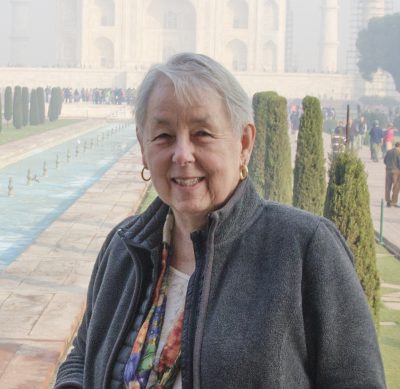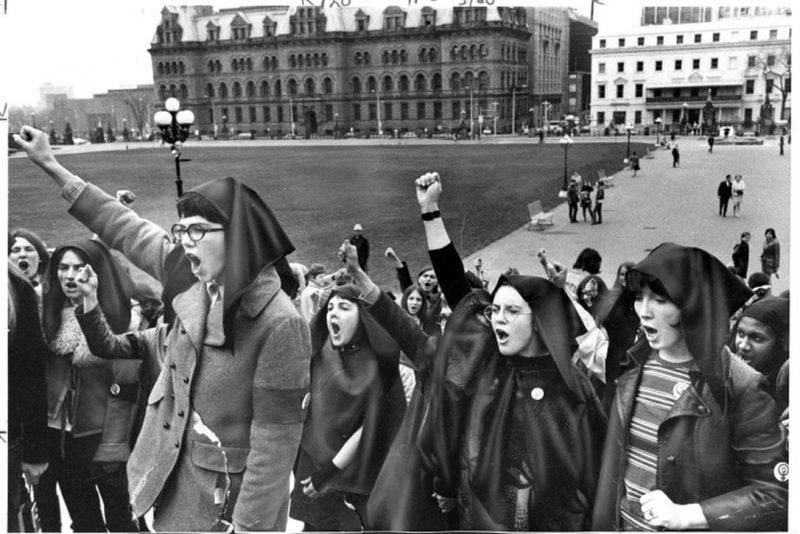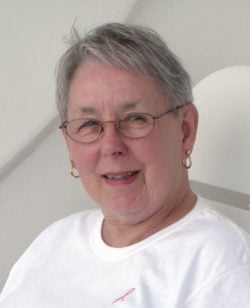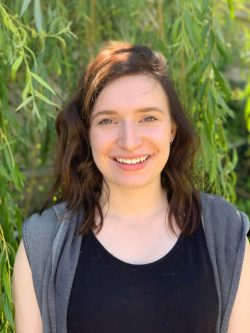#850 Choosing the safest option
Decision Point: An Impossible Choice
by Donalda Reid
Vancouver: Off the Mountain Publishing, 2019
[price to come] / 9780978472412
Reviewed by Zoe McKenna
*
 We’re often warned that those who cannot remember the past are doomed to repeat it. This sentiment motivates Donalda Reid’s newest novel, Decision Point.
We’re often warned that those who cannot remember the past are doomed to repeat it. This sentiment motivates Donalda Reid’s newest novel, Decision Point.
Reid is the author of several books, including her previous novel, The Way it Is (Second Story Press, 2010) and her memoir, Captive: A Survival Story (Off the Mountain, 2007), detailing her time under the capture of Rwandan Hutu rebels.
Decision Point is a historical novel set in Canada in the late 1960s. At just seventeen years old, protagonist Ellen Manery is navigating the male-dominated world of medical school in Toronto. She quickly makes friends with the four other women in her program, and together they form both an academic and personal support group to help overcome the institutional hurdles in their way.
Then, Ellen discovers she is pregnant.
Reid tells Ellen’s story not though linked short stories, as the blurb suggests, but rather in a Choose-Your-Own-Adventure style of writing. The book is divided into sections, with headings that directly address the reader and purposefully disrupt the flow of the book with statements such as “let’s examine each and see what happens next” that invite the participation of the reader. This choice is both distracting and engaging. The direct addresses are jarring in how they interrupt the story, and at the same time make it impossible for a reader to skim or speed-read. The interruptions remind readers to engage with the story, forcing a pause where more thought is needed.

Ellen is afforded several different endings to her story, depending on which choice she makes. These options are presented to her by each of her four university friends, and include options such as a dangerous, illegal abortion; a professional abortion; adoption; marrying the father and keeping their baby; or having her aunt raise the child as her own.
Each option has both risks and rewards. Reid does not approach the abortion debate with the idea that one choice should be superior to another. In fact, it becomes clear through the alternate endings and perspectives that one decision might be right for some, but not for others. Decision Point’s greatest strength is in how Reid structures each possible ending as both logical and understandable, so they all feel equally real and plausible. Reid leads not with judgment, but with compassion.
While no outcome feels more or less feasible or legitimate than another, the events of the novel highlight that some options hold more danger than others. In one possible outcome, Ellen feels she is unable to maintain her pregnancy while also following her dreams of completing medical school, so she opts for an abortion. She is warned against doing anything herself after being told stories of the “botched abortions” caused by women doing anything from “drinking Lysol or bleach” to “throwing themselves down stairs.” She chooses to visit someone doing unlicensed, illegal abortions, an experience that is painful, expensive, and dangerous. However, in the late 1960s, abortion is illegal in Canada and Ellen is forced to pay a large sum of money for an abortion that is both socially hazardous and physically harmful, as no other choice is available.
In an alternate ending, Ellen is able to access a safe and clean abortion which, while still not an easy decision to make, is far less harmful a procedure and has fewer lingering physical ill effects.
This book is described as a “reminder of the struggle by Canadian women for equal rights and lives without oppression, and a warning of how fragile these hard-won rights under the law still are.” Through comparing the two procedures, Reid highlights how important access to safe abortion is, and the potential alternatives women would face should the option be taken away.
Reid pays close attention to this history through including notable historical events and figures that even young Canadians would be familiar with. Issues such as anti-Indigenous systemic racism and institutionalized sexism in Canada are woven into the plot subtly, but with purpose. Ellen and her friends travel to participate in the Abortion Caravan, a 1970 feminist movement in which women flooded to Ottawa to protest for the legalization of abortion. Today, as many across the world march and protest in great numbers for human and civil rights, the parallels of the urgency of this event and the importance of collective power feel all the more poignant. The prime minister at the time of the Abortion Caravan was Pierre Trudeau, and the reality of having his own son in office today serves as a sharp reminder of the closeness of these events.


Decision Point is marketed towards readers of all ages. Reid’s prose reflects this. It is simple, undecorated, and always to the point. It is rare to find description of spaces or places, and frequent expository dialogue ensures that even young readers will not be left behind. Some topics raised needed more explanation, however. Reid offers historically accurate sexual education, including beliefs that we know now to be myth. Adult readers will understand that these scenes are relics from the past — stepping stones of misinformation that aided in placing Ellen in her difficult situation. Younger readers, however, would have benefitted from clarification of this potentially dangerous inclusion.
As parts of North America work to criminalize abortion again, we reach our own decision point. In moving forward we must, like Ellen, consider every option. Decision Point serves as a reminder of our history, and a warning of the dangers in forgetting it. Reid is careful to allow readers to come to their own conclusions about which ending is “right” or “moral,” but she never wavers from underlining what is and is not safe. Her focus is not the ethical rating of Ellen’s situation, but rather the difficulty of the decision she has to make, and the importance of having multiple safe options in front of her.
*

Zoe McKenna recently completed her Bachelor of Arts degree from Vancouver Island University. Zoe studied English, History, and Creative Writing, all with a focus in Canadian literature, Indigenous literature, Gothic/Horror literature, Women’s literature, and the intersections of them all. She is set to begin a Master’s degree in English in the fall of 2020, where she will further her investigation of Canadian Gothic fiction. Her previous work has appeared in VIU’s Portal Magazine, The Navigator Student Press, and The Compass Rose: Exploration in Thought. When not reading, writing, or reviewing, Zoe can be found in front of a horror movie with her two cats, Florence and Delilah. She is always covered in cat hair, and wears almost exclusively dark clothing to prove it. Find her on Twitter @zoevmckenna
*
The Ormsby Review. More Books. More Reviews. More Often.
Publisher and Editor: Richard Mackie
The Ormsby Review is a journal service for in-depth coverage of B.C. books and authors. The Advisory Board consists of Jean Barman, Robin Fisher, Cole Harris, Wade Davis, Hugh Johnston, Patricia Roy, David Stouck, and Graeme Wynn. Scholarly Patron: SFU Graduate Liberal Studies. Honorary Patron: Yosef Wosk. Provincial Government Patron since September 2018: Creative BC
“Only connect.” – E.M. Forster
3 comments on “#850 Choosing the safest option”